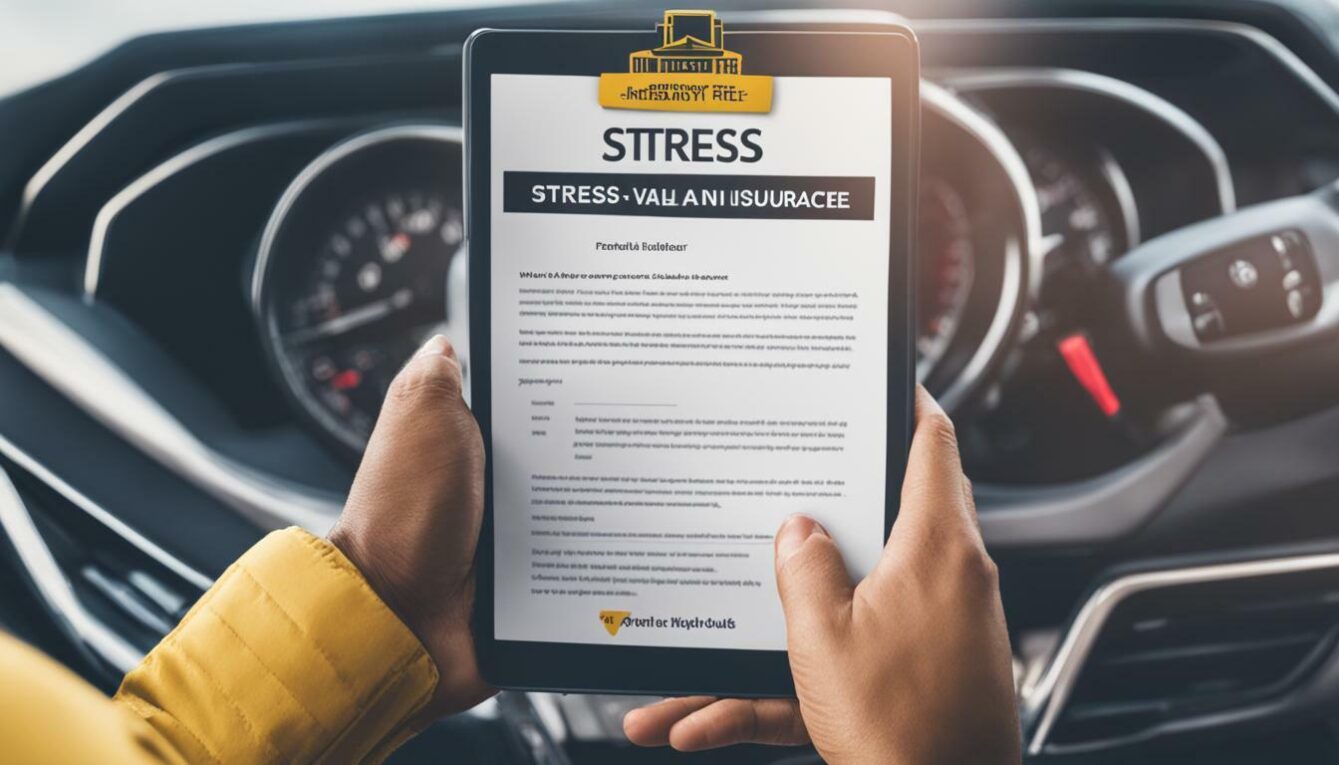Collision waiver insurance for car rental provides essential protection against unexpected repair costs. When renting a car, it’s important to understand the coverage options available to you and make an informed decision to ensure a stress-free travel experience.
Collision Damage Waiver (CDW) is a type of protection that limits the amount a car rental company will charge for repairs to the rental car. It typically covers the bodywork of the car but does not include other parts such as windows, wheels, engine, interior, or personal belongings.
CDW does not cover all repair costs and usually has an excess or deductible that the renter must pay. The excess amount can vary, typically ranging from £500/€600 to £3,000/€3,500. If any part of the car other than the bodywork gets damaged, the renter is responsible for the full cost of repairs.
In addition to CDW, rental cars also come with Theft Protection (covering theft of the car) and Third-Party Liability cover (covering damage to other people’s property). The specific coverage you receive depends on where you live and where you’re renting the car.
At the rental car counter, you may be offered extra cover or insurance options to reduce the excess, cover additional parts of the car, or eliminate the need for a security deposit. These policies may be referred to as Super Collision Damage Waiver (SCDW), Excess Reduction, or similar names. While not a legal requirement, purchasing extra cover may be necessary if your credit card does not have enough available funds for the deposit.
It’s important to note that CDW is not insurance but a waiver of liability. Car rental companies are responsible for any damage to their cars and can pass this liability on to the renter through a waiver. From the renter’s perspective, whether it’s called insurance or a waiver, it provides protection against unexpected repair bills.
When deciding whether to purchase CDW or rely on other forms of coverage, such as credit card rental car insurance or personal auto insurance, it’s crucial to understand the limitations and exclusions of each policy. Credit card rental car insurance may cover damage or theft of the rental car, but it may not extend to medical expenses or personal property within the car. Personal auto insurance may provide coverage for rental cars, but it could result in increased rates or deductibles.
To make an informed decision, review your existing insurance policies, credit card benefits, and options offered by the rental car company. This will ensure that you have the appropriate coverage and minimize any unexpected expenses during your car rental.
Key Takeaways:
- Collision waiver insurance protects against unexpected repair costs for rental cars.
- CDW covers the bodywork of the car but not other parts or personal belongings.
- CDW usually has an excess or deductible that the renter must pay.
- Additional coverages included with rental cars may include theft protection and third-party liability.
- Extra cover or insurance options may be offered at the rental car counter to reduce the excess or cover additional parts of the car.
How Collision Waiver Insurance Works
Collision waiver insurance, also known as CDW, limits the amount rental car companies can charge for repairs to the rental car. It provides protection against unexpected bills and gives renters peace of mind during their travels. CDW typically covers the bodywork of the car, but it does not cover other parts such as windows, wheels, engine, interior, or personal belongings.
One important thing to note is that CDW does not cover all repair costs. It usually comes with an excess or deductible that the renter must pay. This means that if anything other than the car’s bodywork gets damaged, the renter is responsible for the full cost of repairs. The amount of the excess can vary, but it is usually between £500/€600 and £3,000/€3,500.
In addition to CDW, rental cars also come with other types of coverage. For example, Theft Protection covers theft of the car, while Third-Party Liability cover protects against damage to other people’s property. The specific coverage that comes with a rental car will depend on where you live and where you’re renting.
| Types of Coverage | Covered Areas |
|---|---|
| Collision Damage Waiver (CDW) | Bodywork of the car |
| Theft Protection | Theft of the car |
| Third-Party Liability | Damage to other people’s property |
When renting a car, you may be offered extra cover or insurance at the rental car counter. These additional policies can help reduce the excess, cover additional parts of the car, or even eliminate the need for a security deposit. Some common names for these policies include Super Collision Damage Waiver (SCDW) or Excess Reduction. While purchasing extra cover is not a legal requirement, it may be necessary if your credit card does not have enough available funds to cover the security deposit.
It is important to note that CDW is often referred to as insurance, but it is not insurance in the traditional sense. Car rental companies are responsible for any damage to their cars and can pass on this liability to the renter through a waiver. However, from the renter’s perspective, whether it’s called insurance or a waiver, it provides protection against unexpected repair costs.
What to Consider When Choosing Coverage
When deciding whether to purchase CDW or rely on other forms of coverage, such as credit card rental car insurance or personal auto insurance, it is important to understand the limitations and exclusions of each policy. While credit card rental car insurance may offer coverage for damage or theft of the rental car, it may not cover medical expenses or personal property in the car. On the other hand, personal auto insurance may provide coverage for rental cars, but rates may increase and deductibles may apply.
To make an informed decision, it is crucial to review your existing insurance policies, credit card benefits, and options for coverage from the rental car company. This way, you can choose the best course of action that suits your needs and provides you with the necessary protection during your car rental experience.
Comparing Different Coverage Options
When considering collision waiver insurance, it’s crucial to compare it with other coverage options to ensure adequate protection. Credit card rental car insurance and personal auto insurance are two common alternatives. Let’s take a closer look at each:
- Credit Card Rental Car Insurance: Many credit cards offer rental car insurance as a benefit. This coverage can vary depending on the credit card issuer and the specific card you have. It may provide coverage for damage or theft of the rental car, but it’s important to review the terms and conditions to understand any limitations or exclusions. For example, credit card rental car insurance may not cover medical expenses or personal property in the car.
- Personal Auto Insurance: If you already have personal auto insurance, it may provide coverage for rental cars as well. However, it’s essential to check your policy to understand the extent of the coverage. While personal auto insurance may offer similar protection as collision waiver insurance, such as coverage for damage or theft of the rental car, keep in mind that rates may increase and deductibles may apply. Review your policy or contact your insurance provider to determine the coverage specifics.
It’s important to note that collision waiver insurance and other coverage options may have limitations and exclusions. To make an informed decision on coverage, take the time to review your existing insurance policies, credit card benefits, and options available from the rental car company. By doing so, you can ensure that you have the appropriate protection for your car rental needs.
Table: Comparison of Coverage Options
| Insurance Coverage | Coverage Details | Limitations |
|---|---|---|
| Collision Waiver Insurance | Protection against repair costs for the rental car’s bodywork | Does not cover other parts of the car, such as windows, wheels, engine, interior, or personal belongings |
| Credit Card Rental Car Insurance | Coverage for damage or theft of the rental car | May not cover medical expenses or personal property in the car |
| Personal Auto Insurance | Coverage for rental cars | Rates may increase and deductibles may apply |
By comparing the coverage details and limitations of each option, you can make an informed choice that suits your needs and provides the necessary protection for your car rental experience.
Where to Find the Best Deals
Finding the best deals on collision waiver insurance involves exploring rental car company offers and ensuring sufficient funds for a security deposit. At the rental car counter, you may be presented with extra cover or insurance options that can help reduce the excess or deductible, provide coverage for additional parts of the car, or eliminate the need for a security deposit. These policies may be referred to as Super Collision Damage Waiver (SCDW), Excess Reduction, or other similar names.
It’s important to carefully review the terms and conditions of these offers, as they can vary between rental car companies. Comparing the coverage options, excess amounts, and cost of the additional cover can help you determine the best option for your needs and budget.
In addition to exploring rental car company offers, it’s crucial to ensure you have sufficient funds on your credit card for the security deposit. The deposit serves as a guarantee for the rental car company in case of any damages or incidents during the rental period. By having enough available funds, you can avoid any complications or delays when picking up the rental car.
| Rental Car Company | Extra Cover Options | Excess/Deductible Reduction | Security Deposit Requirements |
|---|---|---|---|
| Company A | Super Collision Damage Waiver (SCDW) | Reduces excess by 50% | £500/€600 |
| Company B | Excess Reduction | Reduces excess to £0 | £1,000/€1,200 |
| Company C | Extended Cover Package | Reduces excess by 75% | £2,000/€2,300 |
Comparing the extra cover options, excess/deductible reduction, and security deposit requirements can help you make an informed decision on collision waiver insurance for your car rental. Take the time to understand the terms and conditions and consider your specific needs and budget before making a choice.
Conclusion
Collision waiver insurance for car rental provides valuable protection against unexpected bills and should be carefully considered when planning your trip. Collision Damage Waiver (CDW) is a type of protection that limits the amount a car rental company will charge for repairs to the rental car. It typically covers the bodywork of the car, but not other parts or personal belongings.
However, CDW does not cover all repair costs and usually has an excess or deductible that the renter must pay. This excess can vary, but renters are responsible for the full cost of repairs if anything other than the car’s bodywork gets damaged. Additionally, rental cars come with Theft Protection and Third-Party Liability cover, but the coverage provided will depend on your location.
At the rental car counter, you may be offered extra cover or insurance to reduce the excess or cover additional parts of the car. It is not mandatory to purchase this extra cover, but it may be necessary if your credit card does not have enough available funds for the deposit. It is important to review your existing insurance policies, credit card benefits, and the options provided by the rental car company to make an informed decision on coverage.
When deciding whether to purchase CDW or rely on other forms of coverage, such as credit card rental car insurance or personal auto insurance, it is crucial to understand the limitations and exclusions of each policy. While credit card rental car insurance may offer coverage for damage or theft of the rental car, it may not cover medical expenses or personal property in the car. Personal auto insurance may provide coverage for rental cars, but it may come with increased rates and deductibles.
Overall, carefully reviewing your options for collision waiver insurance and other coverage options will help ensure a stress-free and financially protected travel experience. Keep in mind the importance of understanding the limitations and exclusions of each policy, and don’t hesitate to seek clarification from rental car companies or insurance providers before making a decision.
FAQ
What is Collision Damage Waiver (CDW)?
Collision Damage Waiver (CDW) is a type of protection that limits the amount a car rental company will charge for repairs to the rental car. It typically covers the bodywork of the car, but not other parts such as windows, wheels, engine, interior, or personal belongings.
Does CDW cover all repair costs?
No, CDW does not cover all repair costs. It usually has an excess or deductible that the renter must pay. The amount of the excess can vary, but is usually between £500/€600 and £3,000/€3,500. If anything other than the car’s bodywork gets damaged, the renter is responsible for the full cost of repairs.
What other coverage comes with rental cars?
In addition to CDW, rental cars also come with Theft Protection (covering theft of the car) and Third-Party Liability cover (covering damage to other people’s property). The coverage that comes with a rental car will depend on where you live and where you’re renting.
Are there additional insurance options available at the rental car counter?
Yes, at the rental car counter, you may be offered extra cover or insurance to reduce the excess, cover additional parts of the car, or eliminate the need for a security deposit. Names for these policies can vary, such as Super Collision Damage Waiver (SCDW) or Excess Reduction. It is not a legal requirement to buy extra cover, but it may be necessary if your credit card does not have enough available funds for the deposit.
Is CDW considered insurance?
No, CDW is not insurance. Car rental companies are responsible for any damage to their cars and can pass on this liability to the renter through a waiver. However, from the renter’s perspective, it doesn’t matter whether it’s called insurance or a waiver, as it provides protection against unexpected bills.
How should I decide which coverage option to choose?
When deciding whether to purchase CDW or rely on other forms of coverage, such as credit card rental car insurance or personal auto insurance, it is important to understand the limitations and exclusions of each policy. Credit card rental car insurance may offer coverage for damage or theft of the rental car, but may not cover medical expenses or personal property in the car. Personal auto insurance may provide coverage for rental cars, but rates may increase and deductibles may apply. Reviewing existing insurance policies, credit card benefits, and options from the rental car company will help determine the best course of action.



